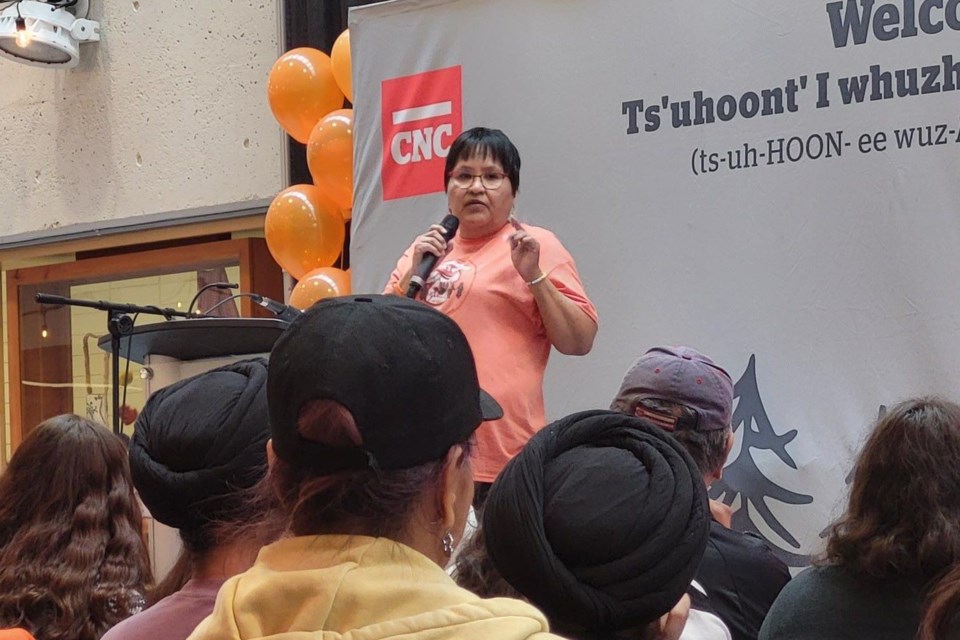Sixties Scoop survivor, Sherry Hunter, shared her story during the College of New Caledonia’s Calling for Action: Honouring Truth event held Sept. 25.

Sixties Scoop survivor Sherry Hunter shared her story during the College of New Caledonia’s Calling for Action: Honouring Truth event.
“Truth and Reconciliation means to me as a First Nations person that we are finally being recognized and acknowledged for the horrific atrocities that are happening to our First Nations people across Canada,” said Hunter, a CNC social worker diploma program student heading for a social work bachelor’s degree.
She talked about her experiences at the event, held Wednesday, Sept. 25 ahead of the National Day for Truth and Reconciliation Day that will be celebrated at Lheidli T’enneh Memorial Park on Monday, Sept. 30 from 2 to 4 p.m.
“I have learned so much here at CNC,” Hunter said.
During her learning she discovered the nature of colonialism, which is part of her own personal story as a '60s Scoop survivor, and has acknowledged the injustices she has experienced because of it.
Between about 1951 and 1984, an estimated 20,000 or more First Nations, Métis and Inuit infants and children were taken from their families by child welfare authorities and placed for adoption or in foster care in mostly non-Indigenous households. This mass removal of Indigenous children from their homes, supported by a series of government policies, became known as the Sixties Scoop, according to the Indian Residential School History and Dialogue Centre website at UBC.
“Some of the injustices include my loss of my language, my culture and my heritage,” Hunter said. “Most importantly I feel my loss of connection to my family and my homeland.”
Besides the loss of her First Nations roots, she also felt like she did not belong with the new white family, she added.
“I was stuck in the middle trying to find a sense of belonging,” Hunter said. “My story is sad but typical that we all hear too often from First Nations across Canada that should never have happened to me and to many, many others.”
Hunter said her experience had a profound impact on her life that she carries with her to this day.
“I know what it’s like to be abused,” Hunter said. “I was taken as a young child and put into two different foster homes. I arrived in the second foster home when I was three. Little did I know what would happen to me there. I was physically, mentally and sexually assaulted from the time I was seven years old until I was 13. These years are important for all our development and if we are not nurtured in a positive environment our later years are a hot mess.”
Because of what Hunter experienced as a young child she said she fell into drug misuse and alcoholism.
During her healing journey she has learned to overcome these addictions and learned a new way in order to become successful, she added.
“My healing journey has been bittersweet,” Hunter said. “The bitter is I am 61 years old getting an education, trying to make a difference. I should’ve had this life when I was 20. The sweet is I am here. I am healthy. I’m getting a good education and I will make a difference.”






No comments:
Post a Comment
Please leave a comment.